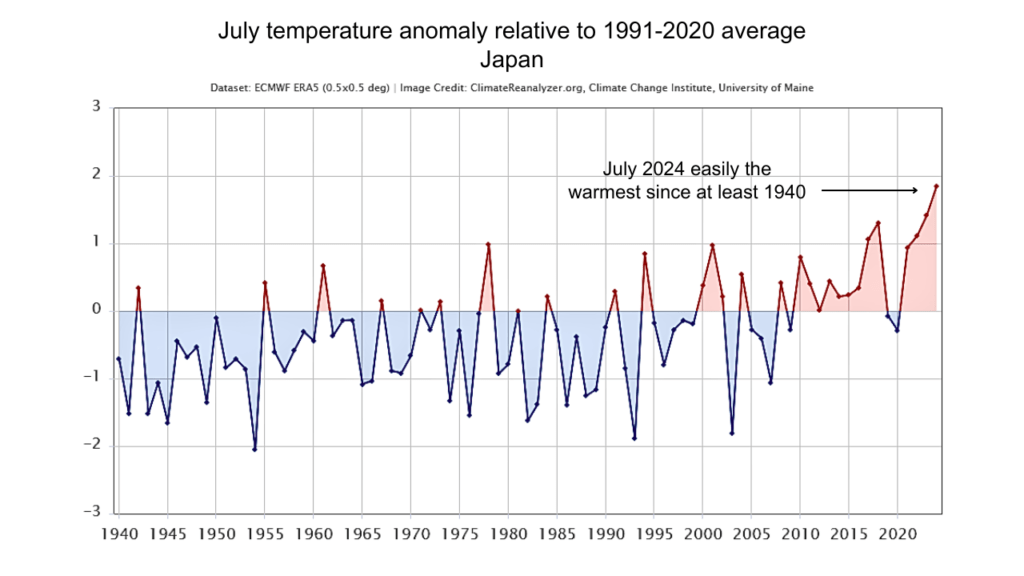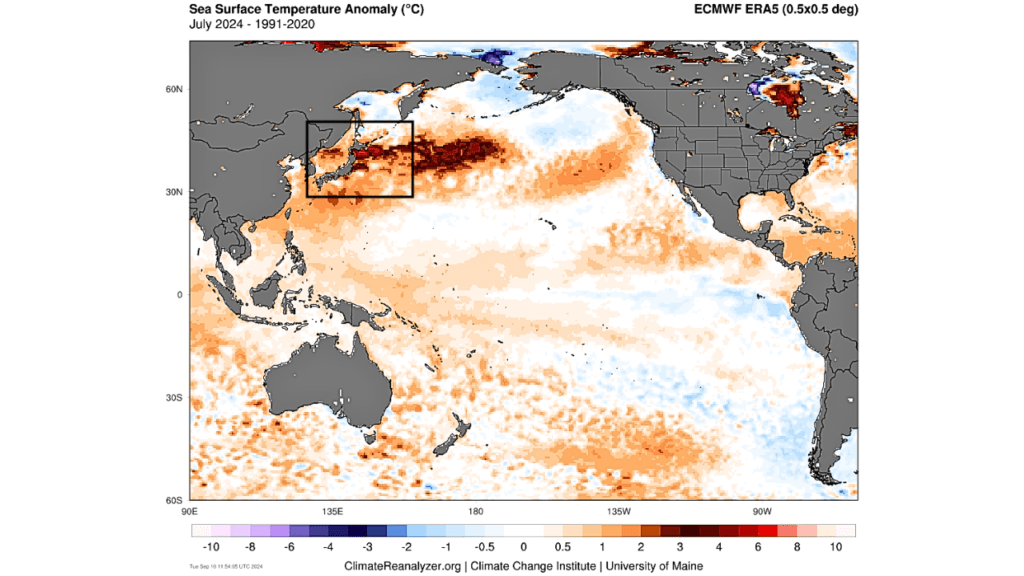Publication date: Aug 30, 2024
The Impact of Temperature and Weather on Japan’s Wholesale Electricity Market
Temperature and climate change significantly influence Japan’s wholesale electricity market. Temperature fluctuations, such as hot summers and cold winters, impact electricity demand due to the increased use of heating and cooling systems, which in turn influences market prices.
Weather also affects supply, particularly with the expansion of renewable energy sources like solar and wind power. These sources are inherently weather-dependent and difficult to predict, leading to fluctuations in supply and market prices. For instance, on rainy or cloudy days, solar power generation decreases, reducing supply and often driving prices up.
Wholesale electricity prices in Japan are primarily determined by transactions on the Japan Electric Power Exchange (JEPX), which was established in 2003 and is the only market in Japan where wholesale electricity can be bought and sold from power producers to retailers. The market offers various types of electricity trading, with the spot and futures markets being the most significant. The spot market allows for short-term trading, helping to balance sudden changes in electricity demand or supply due to variations in the weather. As renewable energy becomes more prevalent, the spot market’s role in adjusting to weather-induced supply fluctuations will become increasingly important. The futures market, on the other hand, facilitates long-term transactions, enabling participants to speculate on future prices and hedge against risks, including those posed by unpredictable summer or winter weather conditions.
Accurate weather forecasting is essential for anticipating fluctuations in both electricity demand and supply, enabling more effective market operations, price stabilization, and risk management in Japan’s wholesale electricity market. According to climate and weather intelligence specialist Atmospheric G2 (AG2), a new partner of Shulman Advisory, state-of-the-art summer maximum temperature forecasts in Japan are accurate to within 1 degree C a day in advance, increasing to 2 degrees C eight days in advance. Some forecasts are more uncertain than others – for example, when trying to time the arrival of thunderstorms or typhoons – so it is important for electricity market participants to understand the risk associated with each forecast.
Atmospheric G2 points out that July 2024 was the hottest July since at least 1940 in Japan, far exceeding the previous records set in 2017 and 2023. The anomalous heat was driven by a combination of factors, including the recent acceleration in global warming due to (1) the recent strong El Nino event and (2) the increase in greenhouse gasses driven by the eruption of the underwater Tonga volcano in 2022. In addition, ocean temperatures in and around Japan are at historically warm levels, further supporting the warmth.

–

The spot market on the Japan Electric Power Exchange (JEPX) in July 2024 saw an average daily volume increase of 18.7% compared to June, reaching 762.75 million kilowatt-hours. The heatwave prompted regional power exchanges to support the Kansai and Tokyo regions, where demand for cooling surged to its highest-ever level in the Tokyo Electric Power Grid area. Spot market prices generally rose but extreme spikes were avoided and the July Tokyo area spot market settled at a monthly average of JPY15.72, compared to JPY10.9 to JPY12.37 in the preceding spring months from April to June.
The Impact of Temperature and Weather on Japan’s Wholesale Electricity Market
________________________________________________________________________________________
This article is produced by Shulman Advisory in partnership with AG2. Our collaboration provides comprehensive climate intelligence services for energy trading, asset management, and risk assessment, helping clients make informed decisions using accurate weather forecasts and risk analysis.
For more information, please email us at info@shulman-advisory.com
